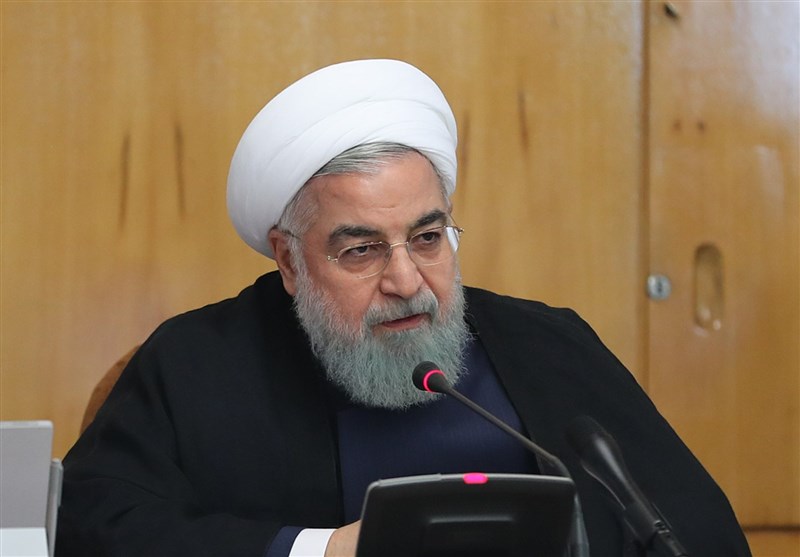
Iran President Hails ICJ’s Warning to US

Speaking at a cabinet session on Wednesday, Rouhani reaffirmed Iran’s strong
opposition and resistance to the US hostile conducts and breach of commitments.
Denouncing the US authorities’ "baseless comments and empty threats” against
Iran, the president said his administration has launched legal and
international efforts against Washington, pointing to a lawsuit that Iran has
filed against the United States for its plan to re-impose sanctions on Tehran.
"In the past few days, the first success in this litigation was achieved, as
the court (ICJ) has explicitly told the US that it is not allowed to do anything
that may affect the court’s probable rulings while Iran’s complaint is being
investigated,” Rouhani added.
"It is a warning to the US from the world’s highest legal authority and from the
president of the International Court of Justice,” he said.
Filing a lawsuit against the US was a legal action, while resistance to the US
plots is going on in the political arena as well, the Iranian president said,
adding that the vast majority of countries condemn the US wrong moves or at
least bemoan them.
Iran recently filed the lawsuit against the United States stating that
Washington's decision in May to re-impose sanctions after pulling out of the
2015 nuclear deal violates the 1955 Treaty of Amity between the two countries.
In comments on Tuesday, head of the international legal affairs center of the
Iranian president’s office, Mohsen Mohebi, said the ICJ president has sent the
letter to US Secretary of State Mike Pompeo warning Washington not to take any
action in contradiction to the future decisions of the ICJ on Iran’s complaint.
The ICJ, which is based in The Hague and is also known as the World Court, is
the United Nations tribunal for resolving international disputes. Iran's filing
asks the ICJ to order the United States to provisionally lift its sanctions
ahead of more detailed arguments.
Although the ICJ is the highest United Nations court and its decisions are
binding, it has no power to enforce them, and countries - including the United
States - have occasionally ignored them.
Source: Tasnim















